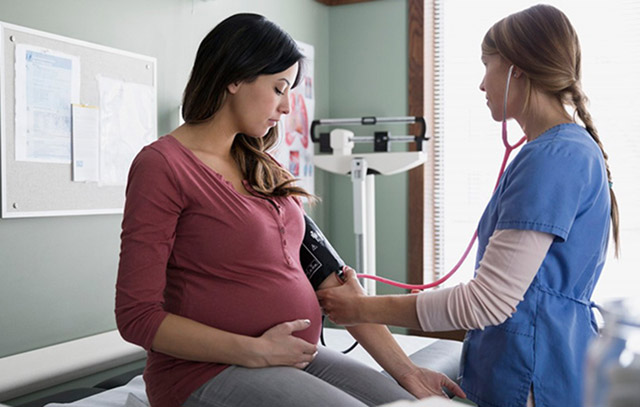High blood pressure during pregnancy has long been linked to greater odds of redeveloping the condition in middle age, but a new study suggests that the increased risk may exist soon after delivery and persist for decades.
Women who had common blood pressure problems like preeclampsia and gestational hypertension during their first pregnancy had 12 to 25 times higher odds of having elevated blood pressure in the first year after delivery than women who had normal blood pressure during pregnancy, researchers report in the BMJ.
Over the first decade after delivery, women with high blood pressure during pregnancy had 10 times higher chances of developing chronic hypertension, the study also found.
“We already knew that women who had had preeclampsia or gestational hypertension during pregnancy had an increased risk of developing chronic hypertension later in life, but the conventional wisdom was that `later in life’ was years or decades postpartum,” said senior study author Dr Heather Boyd of the Statens Serum Institut in Copenhagen.
“We looked year by year, starting right after pregnancy, and found that the risk of chronic hypertension is increased right from the start,” Boyd said by e-mail.
Boyd and colleagues examined data on more than 1 million women who had babies or stillbirths in Denmark from 1978 to 2012.
They found the increased risk of chronic hypertension after a high blood pressure disorder during pregnancy got larger for older first-time mothers.
For women who had first pregnancies in their 20s, 14 per cent who developed high blood pressure while pregnant had chronic hypertension during the first decade after delivery, compared with 4 per cent of their peers with normal blood pressure during pregnancy.
Among women who had first pregnancies in their 40s, 32 per cent of those who had high blood pressure during pregnancy got hypertension over the next decade, compared with 11 per cent of women who had normal blood pressure during pregnancy.
The study wasn’t a controlled experiment designed to prove how or if pregnancy conditions like preeclampsia or gestational hypertension cause high blood pressure later in life.
Even so, the results suggest that even young women who develop high blood pressure during pregnancy should be monitored for symptoms of heart disease long before they reach middle age, when hypertension becomes more common, Boyd said.
A separate US study in the BMJ examined data on more than 5,500 women with a history of high blood pressure during pregnancy and found that obesity may influence their odds of developing chronic high blood pressure after delivery.
“Women are generally advised to keep a healthy weight before and throughout pregnancy,” said lead study author Dr Simon Timpka of Lund University Diabetes Centre in Malmo, Sweden.
“In order to reduce the risk of post-pregnancy hypertension, it appears especially important for women with a history of hypertensive disorders of pregnancy to keep a healthy weight,” Timpka said by e-mail.
Avoiding chronic high blood pressure after preeclampsia or gestational hypertension, however, isn’t all about diet and exercise, said Dr Leonie Callaway, author of an accompanying editorial and professor at the University of Queensland Centre for Clinical Research.
“It is also about work-life balance, contentment, spirituality, engagement in nature, social connections, family connections, etc.,” Callaway said by e-mail. “Take a diagnosis of hypertension in pregnancy as a special gift — a warning that you are a special person and you really need to take care of yourself.”
